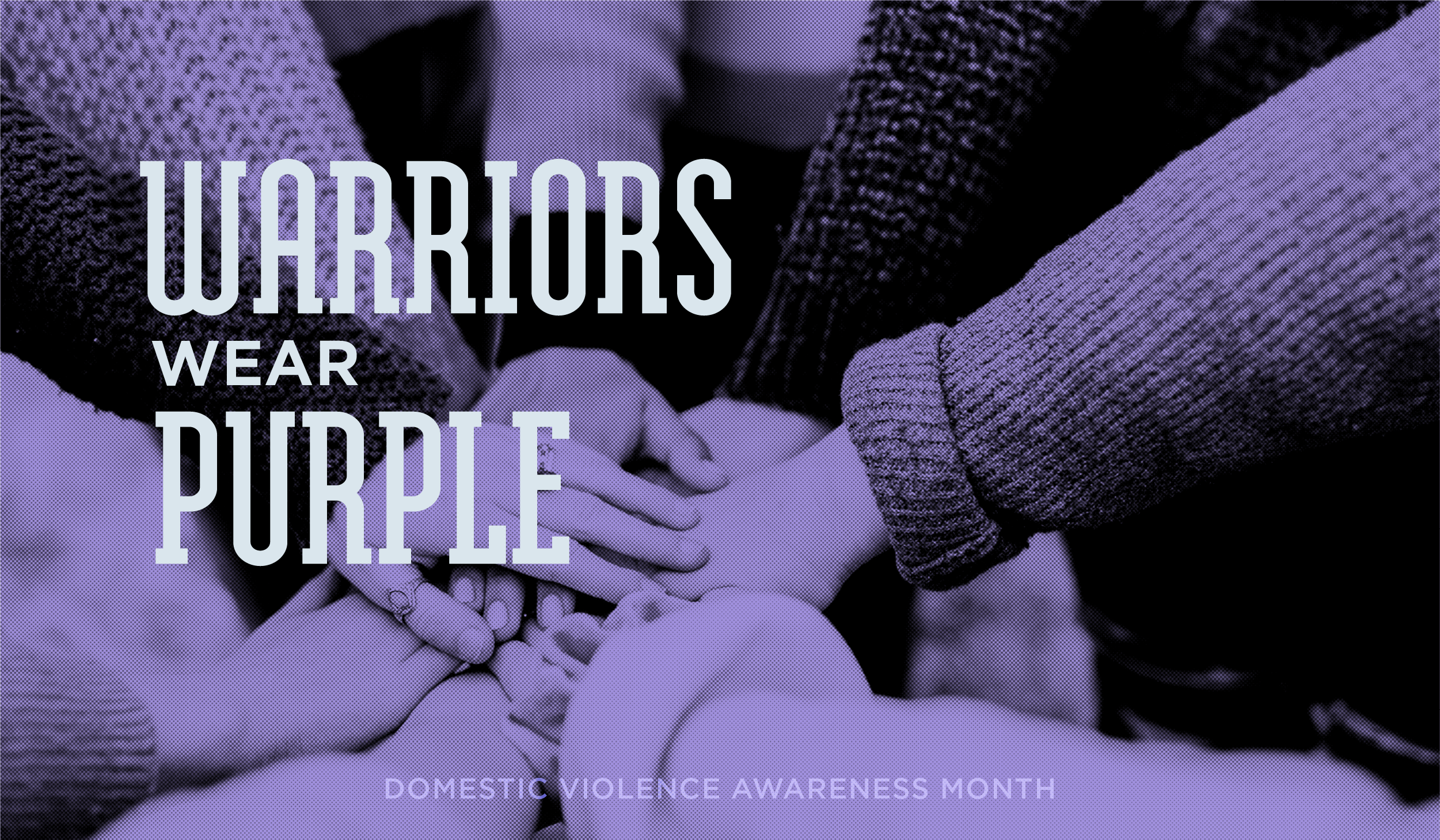
Domestic Violence Awareness
1 in 4 women and 1 in 9 men have experienced some form of severe physical violence, sexual violence, or stalking at the hands of a partner.
Domestic violence includes any physical or sexual violence, threats, economic, emotional, and psychological abuse perpetuated by an intimate partner. Identifying and understanding the signs of domestic violence is the first step to helping someone out of a difficult situation.
Know the Signs
There are many red flags for abusive behavior in intimate partnerships which include:
- Telling you that you never do anything right.
- Showing extreme jealousy of your friends or time spent away from them.
- Preventing or discouraging you from spending time with friends, family members, or peers.
- Insulting, demeaning, or shaming you, especially in front of other people.
- Preventing you from making your own decisions, including about working or attending school.
- Controlling finances in the household without discussion, including taking your money or refusing to provide money for necessary expenses.
- Pressuring you to have sex or perform sexual acts you’re not comfortable with.
- Pressuring you to use drugs or alcohol.
- Intimidating you through threatening looks or actions.
- Insulting your parenting or threatening to harm or take away your children or pets.
- Intimidating you with weapons like guns, knives, bats, or mace.
- Destroying your belongings or your home.
Domestic violence doesn’t just affect those involved; 1 in 15 children are exposed to intimate partner violence each year, and 90% of these children are eyewitnesses to this violence.
In Minnesota during 2020, at least 20 women & 1 man died from intimate partner violence. At least 3 children died due to relationship abuse and at least 6 bystanders/interveners died.
Reach Out & Get Help
It can be difficult to know how to show support if you suspect someone you know who may be in an abusive relationship or suffering from some form of domestic violence. It’s even more difficult when you, yourself, are in a vulnerable situation and don’t know how to reach out or get help.
If you or someone you know is personally affected, stop by the WSU Advocacy Center in Gildemeister Room 101 Mon–Wed & Fri from 8AM–4:30PM available for walk-in and by *********@*******te.edu/bookings/”>appointment.
Contact the WSU Confidential Advocate, Mon–Fri 8AM–4:30PM by calling at 507.457.2956, texting 507.470.0403 or sending an email to ad******@****na.edu.
The Advocacy Center of Winona is open Monday-Friday, 8:30AM–4:30PM and is located in the heart of downtown Winona. Call their 24/7 hotline at 507.452.4453.
For national help, you can call the National Domestic Violence Hotline 24/7 at 1.800.799.7233.
Give Back
Want to help fight to end domestic violence and help survivors? Sign up to volunteer at the Advocacy Center of Winona or apply to be on the student advisory board at the WSU Advocacy Center.
Want to more about Domestic Violence Awareness Month at WSU? Check out this article by the Winonan.